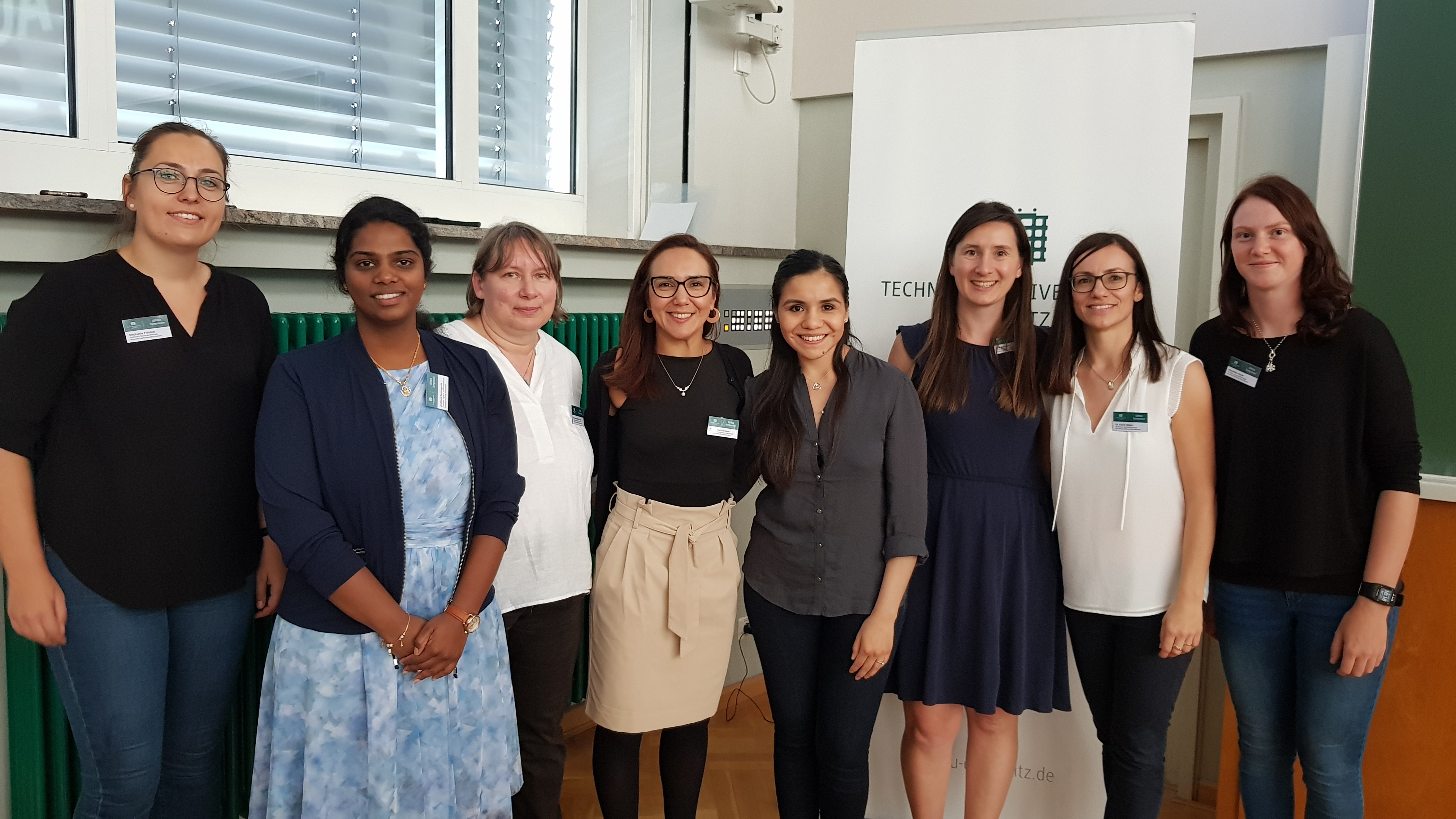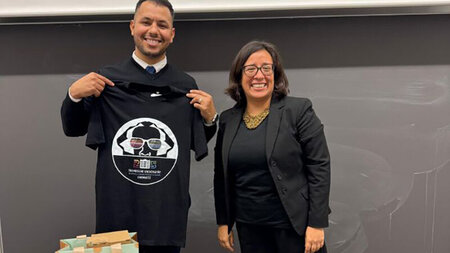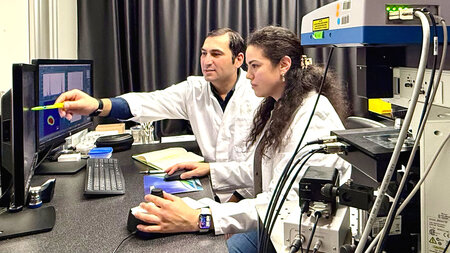Project

Researchers from various professorships, most often in the early phases of their careers, are involved in the project SENDA. From left: Stephanie Fröhlich, Jyothsna Kondragunta; Monika Rehbein-Kutz, Dr Andresa Germano, Dr Maria Fernanda Agoitia, Karen Mersiovsky, Dr Katrin Müller and Alexandra Clauß.
The project “Sensor-based systems for early detection of dementia – a reaction to demographic change” (SENDA) that is run jointly by the labs Sports Psychology, Movement Sciences, Digital Signal Processing and Circuit Technology and Analysis at the Chemnitz University of Technology is running from August 2017 until the end of September 2020.
Dementia-induced changes set in long before the manifestation of clinical symptoms, such as difficulty finding words or memory impairments. Current research indicates that changes in the motor system (e.g. subliminal changes in gait) can be observed at very early stages of dementia, often before the occurrence of cognitive deficits.
The aim of the project “Sensor-based systems for early detection of dementia” (SENDA) is to identify factors in the area of movement (e.g. gait, balance, fine motor skills) and sensory perception (e.g. sensitivity at the finger tips), which can be early indicators of the development of dementia. As a first step, systematic knowledge and tools for diagnosis of dementia-induced changes that go beyond a pure cognitive diagnosis were compiled. This systematic compilation serves as a basis for various focal points of the project, such as further development of the diagnostic tools, especially in the area of motor and sensory perception and evaluation of their efficacy
within a sequence-approach. A multidimensional diagnostic tool for early detection of dementia will help people affected to receive early care. This way, healthcare resources for people at risk can be maintained for longer, resulting in the ability to
continue living independently. As a consequence the burden on the health system will be sustainably decreased.
The project is carried out in cooperation between the professorships of Sports Psychology (with focus on prevention and rehabilitation, Prof. Dr. Claudia Voelcker- Rehage), Movement Sciences (Prof. Dr. Thomas L. Milani), Digital Signal Processing and Circuit Technology (Prof. Dr.-Ing. Gangolf Hirtz) and Analysis (Prof. Dr. Peter Stollmann) at the Chemnitz University of Technology. The early career researcher group is funded by ESF. This study named “Sensor-based systems for early detection of dementia (SENDA)” is funded by the European Social Fund and the Sächsische AufbauBank - Förderbank of the Free State of Saxony.
Contact:
Dr. Katrin Müller
Thüringer Weg 11
09126 Chemnitz
Phone: 0371 531 19938
Email: katrin.mueller@hsw.tu-chemnitz.de
Contact for interested volunteers:
Dr. Katrin Müller
phone: 0371 531 19938
Email: senda@hsw.tu-chemnitz.de
Running time: August 2017 – July 2020
Sponsor: European Social Fund for Germany (ESF)





